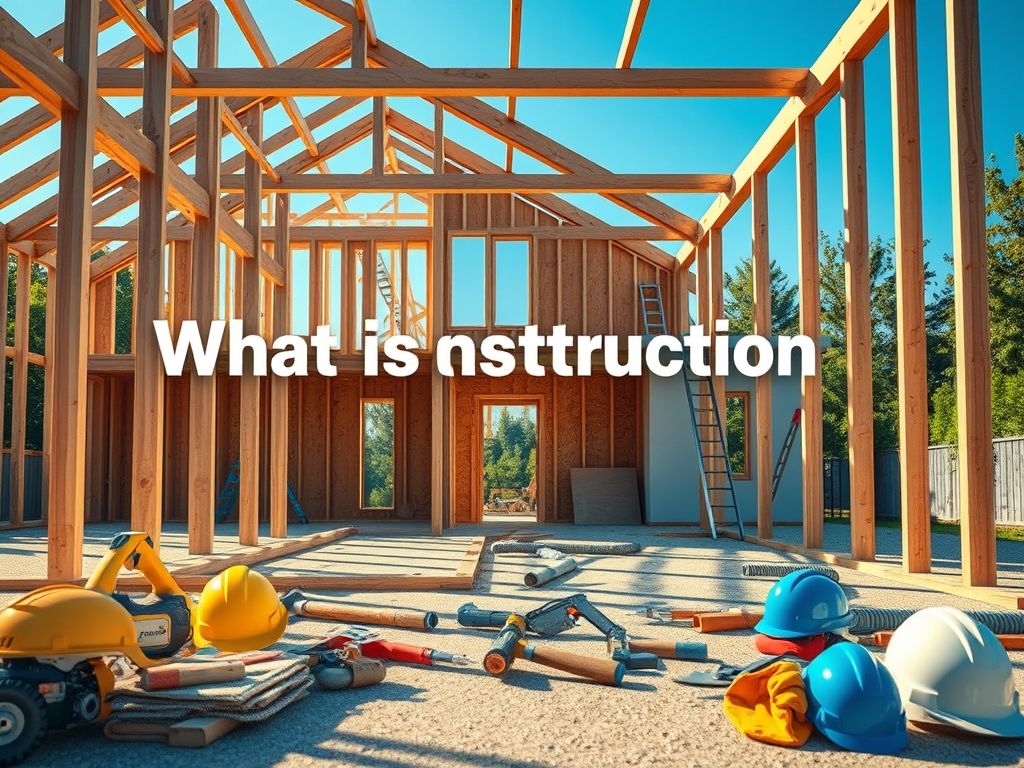What is Construction?
Construction is the process of creating, building, or assembling a structure, such as a residential home, commercial building, or infrastructure. This multifaceted industry encompasses various stages, including planning, design, and execution. In Massachusetts, construction plays a vital role in enhancing the economy and meeting the housing demands of homeowners and real estate investors.
The Importance of Construction in Massachusetts
In Massachusetts, the construction industry is a significant contributor to the state’s economy. With a booming real estate market, the demand for residential and commercial properties has surged, prompting many homeowners and contractors to engage in construction projects. Understanding what construction entails can help you make informed decisions whether you are a homeowner looking to renovate, a real estate investor, or a professional contractor.
Key Components of Construction
- Planning and Design: This phase involves determining the project scope, budget, and timeline. Architects and engineers collaborate to create detailed blueprints.
- Permitting: Before construction can begin, necessary permits must be obtained from local municipalities in Massachusetts to ensure compliance with zoning laws and building codes.
- Construction Execution: This stage involves the physical building process, including site preparation, foundation work, and the actual construction of the structure.
- Finishing Touches: After the primary structure is built, finishing tasks such as painting, flooring, and landscaping are completed to enhance aesthetic appeal and functionality.
What is Construction Management?
Construction management involves overseeing the entire construction process to ensure that projects are completed on time, within budget, and to specified quality standards. It is a critical role for homeowners and contractors in Massachusetts, as it can impact the success of a construction project significantly.
Real-World Applications of Construction Management
- Residential Projects: Homeowners can hire construction managers to oversee their renovation projects, ensuring that timelines are met and budgets are adhered to.
- Commercial Developments: For real estate investors, having a construction manager can help streamline the process of developing new commercial properties, from planning to execution.
- Safety Oversight: Construction managers ensure that safety protocols are followed on-site, protecting workers and minimizing risks.
What is Home Renovation?
Home renovation is a subset of construction that focuses specifically on improving existing residential structures. This can include anything from minor updates, like painting and flooring, to major alterations, such as kitchen remodels or room additions. Home renovation is a popular choice for homeowners in Massachusetts looking to enhance their living spaces.
Practical Examples of Home Renovation
- Kitchen Remodeling: Upgrading your kitchen can significantly improve your home’s value and functionality, making it a popular renovation choice.
- Bathroom Upgrades: Modernizing bathrooms with new fixtures and layouts can enhance comfort and appeal.
- Energy Efficiency Improvements: Renovating with energy-efficient materials and systems can lower utility bills and increase home value.
How to Approach a Construction Project
Embarking on a construction project can be overwhelming, but with the right approach, it can be a rewarding experience. Here are some steps to guide you through the process:
- Define Your Goals: Clearly outline what you want to achieve with your construction project, whether it’s a new build or a renovation.
- Set a Budget: Determine how much you are willing to invest in the project, considering both hard and soft costs.
- Research Local Contractors: Look for reputable contractors in Massachusetts who have experience with projects similar to yours.
- Plan and Design: Collaborate with architects and designers to create a detailed plan that meets your needs and adheres to local regulations.
- Monitor Progress: Stay involved throughout the construction process, ensuring that everything is on track and addressing any issues that arise.
Related Concepts in Construction
Understanding construction also involves familiarizing yourself with related concepts that can enrich your knowledge and decision-making. Here are some key terms:
- Building Codes: Regulations set by local governments to ensure safety and health standards in construction.
- Sustainable Construction: Practices that aim to minimize environmental impact and enhance energy efficiency.
- Contractor Types: Different types of contractors, such as general contractors, subcontractors, and specialty contractors, each play unique roles in construction projects.
Conclusion
Understanding what construction is and how it operates is essential for homeowners, real estate investors, and contractors in Massachusetts. From planning and executing a project to navigating the complexities of home renovation, being knowledgeable about the construction process empowers you to make informed choices. Whether you’re embarking on a new build or a home renovation, utilizing the insights gained from this article can lead to successful outcomes and enhanced living spaces.
Final Thoughts
As you consider your next construction or renovation project, remember the importance of thorough planning and the value of working with experienced professionals. By applying the knowledge gained here, you can turn your construction dreams into reality.







